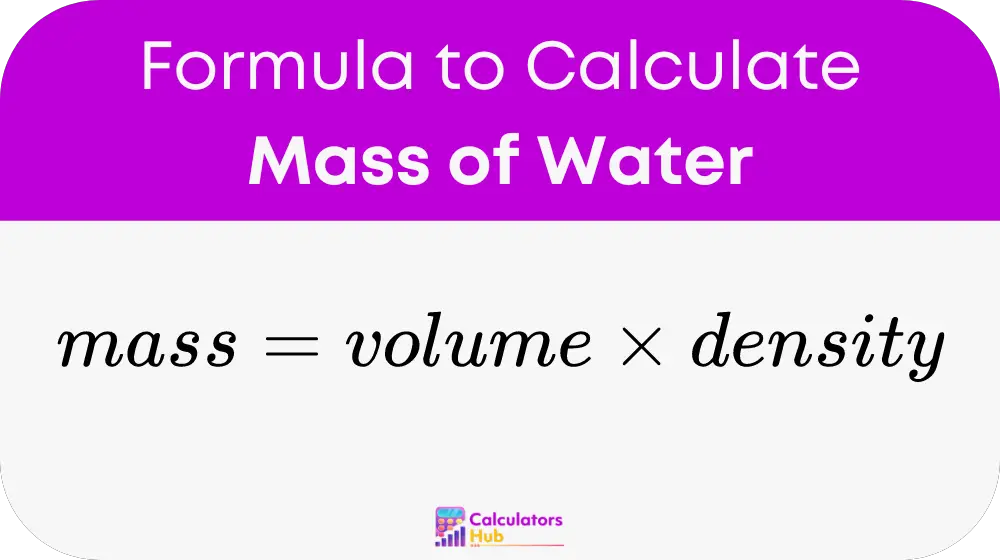This calculator simplifies the process of determining the mass of water. By inputting the volume of water and knowing the standard density, users can instantly calculate the weight, which is essential for tasks ranging from cooking and aquarium maintenance to scientific experiments and engineering projects.
Formula of Mass of Water Calculator
The core calculation used by the Mass of Water Calculator is straightforward:

Definitions:
- Mass: The mass of the water, measured in grams or kilograms, indicates the weight of the water.
- Volume: This is how much space the water occupies, provided in liters or cubic centimeters.
- Density: Typically, the density of water is 1 gram per cubic centimeter under standard conditions, a constant used in most calculations unless specified otherwise.
Application Table
Here’s a practical table for quick reference:
| Volume (L) | Density (g/cm³) | Mass (kg) |
|---|---|---|
| 1 | 1 | 1 |
| 5 | 1 | 5 |
| 10 | 1 | 10 |
| 50 | 1 | 50 |
| 100 | 1 | 100 |
Additional conversions, such as liters to cubic meters or cubic centimeters to liters, are essential for adapting the calculations to different scenarios.
Example of Mass of Water Calculator
Let’s calculate the mass of water in a standard 25-liter aquarium:
- Given: Volume = 25 liters, Density = 1 g/cm³
- Calculation: Mass = 25 liters * 1 g/cm³ = 25 kilograms
This straightforward calculation shows the utility of the Mass of Water Calculator in everyday applications.
Most Common FAQs
The standard density of water used is 1 g/cm³ at standard temperature and pressure, ideal for most situations unless precision demands accounting for temperature variations.
As temperature increases, water expands, slightly decreasing its density. Calculations for precise scientific experiments may need adjustments based on temperature data.
Yes, by adjusting the density value, this formula can be adapted for other liquids, making it a versatile tool for various liquid mass calculations.